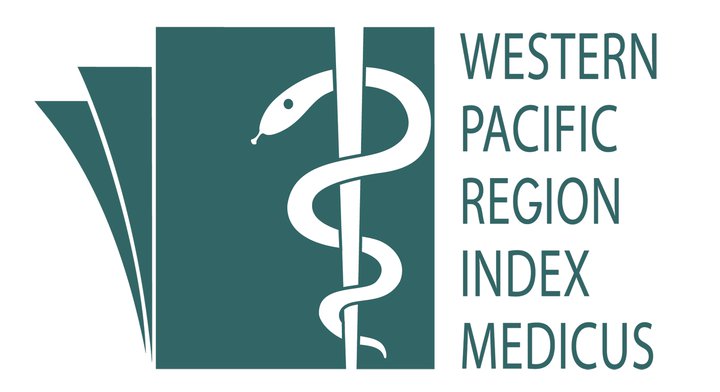An Australian Evaluation of the Tick Program Awareness among University Students
Keywords:
cardiovascular disease (CVD) - Tick Program - nutrition - food selection - university students.Abstract
Introduction
Cardiovascular disease is a major cause of death in Australia. The Tick Program by the National Heart Foundation was designed to assist consumers in making healthier food choices.
Objective
The aim of our study was to evaluate the awareness of university students regarding the Tick Program as a sustainable approach in preventing the onset of cardiovascular disease (CVD) in youth.
Methods
Following Ethics Committee approval, a cross-sectional study was undertaken in 2006 to measure university students’ level of awareness of the Tick Program using a self-administered survey form. Inclusion criteria were full-time university students who have lived in Australia for a minimum duration of twelve months and do their own shopping. Students of less than 18 years of age were excluded from the study.
Results
Of 110 university students surveyed, 97 questionnaires were successfully completed (response rate: 88%). Overall there was a high level of awareness (72.2%) of the Tick program, which was also considered trustworthy by a majority of participants, with a mean rating of 3.87 (on a scale of 1 to 5). Tick-approved products were also considered a healthier choice by participants (mean 4.06 out of 5). Participants were also asked to identify potential barriers limiting the use of the Tick in making purchase decisions. The most important barrier identified to the Tick program was the limited range of Tick-approved products. A significant proportion of respondents also believed there was limited publicity of the program.
Conclusions
The Tick Program is considered to be trustworthy and the approved products were regarded as healthy, with the results showing that participants have confidence in the Tick Program. This research also highlighted the potential areas for improvement of the Tick Program.
References
Vartiainen E, Sarti C, Tuomilehto J, Kuulasmaa K. Do Changes in Cardiovascular Risk Factors Explain Changes in Mortality from Stroke in Finland? BMJ. 1995;310(6984):901-4.
Ross R. Atherosclerosis - An Inflammatory Disease. New England Journal of Medicine. 1999;340(24):1928-9.
Berenson GS, Srinivasan SR, Bao W, Newman WP, III, Tracy RE, Wattigney WA. Association between Multiple Cardiovascular Risk Factors And Atherosclerosis in Children and Young Adults. New England Journal of Medicine. 1998;338(23):1650-6.
Strong JPMD, Malcom GTP, McMahan CAP, Tracy REMDP, Newman WPIIIMD, Herderick EE, et al. Prevalence and Extent of Atherosclerosis in Adolescents and Young Adults: Implications for Prevention From the Pathobiological Determinants of Atherosclerosis in Youth Study. JAMA. 1999;281(8):727-35.
Daniels SR, Pratt CA, Hayman LL. Reduction of risk for cardiovascular disease in children and adolescents. Circulation. 2011;124(15):1673-86.
Monique Verschuren WM, Kromhout D. Total cholesterol concentration and mortality at a relatively young age: do men and women differ? BMJ. 1995;311(7008):779-83.
Assmann G, Cullen P, Jossa F, Lewis B, Mancini M. Coronary Heart Disease: Reducing the Risk: The Scientific Background to Primary and Secondary Prevention of Coronary Heart Disease A Worldwide View. Arteriosclerosis, Thrombosis & Vascular Biology. 1999;19(8):1819-24.
Hooper L, Summerbell CD, Higgins JPT, Thompson RL, Capps NE, et al. Dietary fat intake and prevention of cardiovascular disease: systematic review. BMJ. 2001;322(7289):757-63.
Stampfer MJ, Hu FB, Willett WC. Primary Prevention of Coronary Heart Disease in Women through Diet and Lifestyle. New England Journal of Medicine. 2000;343(24):1814-5.
Keys A, Mienotti A, Karvonen MJ, Aravanis C, Blackburn H, Buzina R et al. The Diet and 15-year Death Rate in the Seven Countries Study. Am J Epidemiol. 1986;124 (6): 903-915.
Tatoulis J, Roberts LM, Mackintosh A-M. Do doctors need to exercise caution when recommending products with the Heart Foundation Tick? Con. Med J Aust. 2011;194(6):285-6.
Downloads
Published
How to Cite
Issue
Section
License
IJPHR applies the Creative Commons Attribution (CC BY) license to articles and other works we publish. If you submit your paper for publication by IJPHR, you agree to have the CC BY license applied to your work. Under this Open Access license, you as the author agree that anyone can reuse your article in whole or part for any purpose, for free, even for commercial purposes. Anyone may copy, distribute, or reuse the content as long as the author and original source are properly cited. This facilitates freedom in re-use and also ensures that IJPHR content can be mined without barriers for the needs of research.






